Not all unfair treatment at work is illegal. Sometimes, workplace conflict arises from misunderstandings, personal differences, or poor management practices that don’t necessarily violate the law. However, when that mistreatment is tied to who you are, your race, gender, age, disability, religion, national origin, or another protected characteristic, it may cross the threshold into unlawful behavior. Discrimination can take many forms, both overt and subtle, and it can leave employees feeling powerless, isolated, or unsure of how to respond.
Knowing your rights is the first step toward reclaiming that power. Employment laws exist to safeguard fairness in the workplace, but it’s up to individuals to recognize violations and take action. Whether you’re being denied a promotion, unfairly disciplined, subjected to offensive comments, or let go under suspicious circumstances, federal and state discrimination laws may protect you. Understanding when a situation becomes unlawful is essential for protecting your livelihood and dignity.
In this guide, we’ll explain what workplace discrimination looks like under job discrimination laws, when to consult an employment discrimination lawyer, and what steps you should take to preserve your rights.

What Is Employment Discrimination?
Employment discrimination occurs when an employer treats an employee or job applicant unfavorably because of their protected characteristics.
Under federal law, these include:
- Race or color
- Religion
- Sex (including pregnancy, sexual orientation, or gender identity)
- National origin
- Disability
- Age (40 or older)
- Genetic information
These protections are enforced by the U.S. Equal Employment Opportunity Commission (EEOC) and codified in federal laws, such as Title VII of the Civil Rights Act, the Americans with Disabilities Act (ADA), and the Age Discrimination in Employment Act (ADEA), among others. For more details, refer to the USCIS Overview of Federal Employment Discrimination Laws.
Employment discrimination can manifest in various forms. For example, an employer may refuse to hire a qualified candidate because of their accent, demote an employee after she announces a pregnancy, or fire a worker who reports racial harassment. In many cases, these actions are illegal.
Discrimination is not limited to hiring and firing. It can occur at any point in the employment process, including:
- Job advertisements and interviews
- Pay and benefits decisions
- Performance evaluations
- Promotions and demotions
- Disciplinary actions
- Layoffs or termination
Even seemingly neutral policies can be discriminatory if they disproportionately affect individuals in a protected class and are not job-related or necessary for business operations.
Recognizing the Signs of Job Discrimination
Discrimination isn’t always obvious. While blatant slurs or exclusionary policies are easier to spot, many cases involve subtle or cumulative behaviors that create a hostile or unfair work environment. Some common red flags include:
- Being consistently passed over for promotions despite strong performance
- Receiving harsher discipline than peers for similar conduct
- Suddenly getting negative reviews after reporting misconduct
- Being excluded from key meetings, training, or projects
- Pay disparities among employees with similar roles and experience
- Reassignment to less favorable duties without explanation
It’s important to distinguish between poor management and unlawful discrimination. Not every instance of unfairness is illegal. But suppose you notice a pattern of unfavorable treatment that appears tied to your race, gender, age, disability, or another protected trait. In that case, it’s worth consulting an employment discrimination lawyer.
Keep in mind that harassment is also a form of discrimination. This includes unwelcome conduct such as offensive jokes, slurs, threats, or physical intimidation. Harassment becomes illegal when it is severe or pervasive enough to create a hostile work environment or result in an adverse employment decision.
When Should You Call an Employment Discrimination Lawyer?
If you’re unsure whether what you’re experiencing qualifies as unlawful discrimination, that’s precisely when an employment discrimination lawyer can help.
You should consider reaching out to an attorney if:
- You’ve been fired, demoted, or denied opportunities based on a protected trait
- You’ve reported discrimination or harassment and experienced retaliation
- HR has not taken your complaint seriously or investigated it properly
- You’re facing a forced resignation or constructive discharge
- You’re being pressured to sign a settlement, release, or severance agreement
Consulting a lawyer early can preserve your rights and prevent you from missing critical deadlines. For example, under federal law, you generally must file a charge with the EEOC within 180 days of the discriminatory act. In some cases, the deadline may be extended to 300 days depending on your state’s laws.
An employment discrimination lawyer can also help you evaluate the strength of your claim, advise you on how to document incidents, and guide you through interactions with HR or management. In many cases, early legal advice can prevent a situation from escalating.
What to Do if You Suspect Discrimination
Here’s a step-by-step guide for employees who believe they’ve experienced discrimination:
1. Document Everything
Keep a written record of events, including:
- Dates, times, and details of discriminatory incidents
- Names of people involved
- Any relevant emails, messages, or performance reviews
- Notes on any complaints you’ve filed internally
This documentation can be crucial evidence if legal action becomes necessary.
2. Review Company Policies
Check your employee handbook or HR policies to understand the internal complaint procedures. Follow those steps when reporting discrimination, and do so in writing whenever possible.
3. File an Internal Complaint
Notify HR or management in writing. Be specific and factual in describing what happened and why you believe it violates company policy or the law.
4. File a Charge with the EEOC
If the issue is not resolved internally, you can file a charge with the EEOC. This is a required step before you can sue under most federal laws.
You can file online, in person at an EEOC office, or by mail. After reviewing your charge, the EEOC may:
- Investigate the claim
- Mediate between you and your employer.
- Issue a ‘right to sue’ letter, allowing you to take your case to court.
5. Consult a Lawyer Early
A seasoned employment discrimination lawyer can guide you through each step, ensure deadlines are met, and advocate for your rights throughout the process.
What Laws Protect You From Workplace Discrimination?
Several major federal laws form the foundation of job discrimination laws in the U.S., including:
- Title VII of the Civil Rights Act of 1964 – Protects against discrimination based on race, color, religion, sex, or national origin.
- ADA (Americans with Disabilities Act) – Prohibits discrimination based on disability and requires reasonable accommodations
- ADEA (Age Discrimination in Employment Act) – Protects employees age 40 and over
- Equal Pay Act of 1963 – Requires employers to pay men and women equally for substantially similar work.
- GINA (Genetic Information Nondiscrimination Act) – Prohibits discrimination based on genetic information
These laws apply to private employers, government agencies, labor unions, and employment agencies.
In addition to federal protections, many states and local governments have their own discrimination laws that may offer broader protections. For instance, some states protect workers based on marital status, political affiliation, or arrest records. A knowledgeable attorney can explain how federal and state laws interact in your case.
Why Legal Help Matters
Employment discrimination cases are often complex, emotionally taxing, and nuanced in their legal aspects. An experienced employment law firm with knowledgeable employment discrimination lawyers can:
- Assess whether your case meets the legal standard
- Help you gather strong evidence and documentation
- Represent you in EEOC proceedings or court
- Negotiate settlements or mediation agreements
- Ensure your claim is filed within deadlines
- Guide you through a clear, step-by-step legal strategy tailored to your case
Whether you’re at the beginning of the process or already deep into it, legal counsel can make the difference between a dismissed case and a successful resolution.
At Cantrell Schuette, our team understands the emotional and legal challenges involved in employment discrimination cases. We provide personalized, strategic guidance to help clients protect their rights, navigate the EEOC process, and pursue the best possible outcomes. When you’re ready to take the next step, we’re here to support you every step of the way.
Know Your Rights, Protect Your Future
Workplace discrimination doesn’t just damage your career; it threatens your dignity and sense of security. It can lead to emotional stress, mental health challenges, and even financial hardship if it results in lost wages or stalled advancement. Many workers hesitate to speak up, fearing retaliation, isolation, or job loss, but silence only allows the problem to persist.
Discrimination laws are designed to protect employees, but legal remedies only work if you know how and when to use them. Waiting too long or failing to document your experience properly can severely limit your options. That’s why it’s crucial to act with intention and knowledge.
The first step in navigating discrimination is recognizing the signs of discrimination.. From there, taking timely action, whether through internal complaints, EEOC charges, or consultations with a lawyer, can empower you to assert your rights and protect your future.
Suppose you’re navigating uncertainty or believe you’ve been subjected to unlawful treatment at work. In that case, resources like the EEOC, USA.gov, and the Department of Justice offer valuable support. However, often the most effective move is to speak with a knowledgeable employment discrimination lawyer who can help you assess your options, protect your documentation, and take meaningful action.
You don’t have to face workplace discrimination alone, and you don’t have to guess at your rights. The law is on your side. Let experience guide your next step.



